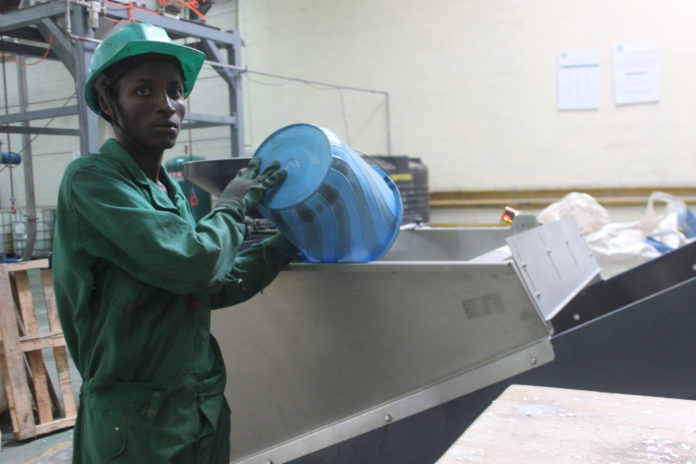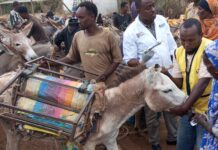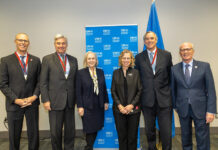By Lilian Museka
Nairobi, Kenya: Plastics’ use constitutes a major challenge for waste management around the world. In 2017, Kenya effected a ban on the importation or manufacturing of plastics carrier bags imposing a fine of up to Ksh.50, 000 or jail term of one year for offenders.
The Aljazeera reported that President Uhuru Kenyatta vowed to ban single-use plastic bags by June 2020.
Mr. Green Africa is a Kenyan tech-enabled plastic recycling company that tackles waste management problems. It sells pre-processed recycling materials with a traceable social and environmental impact. The two, Kerian who is the chief executive officer (CEO) and his co-founder Mr. Karim Debabe realized that waste is a resource and the waste value chain needed to be inclusive of the informal sector. A banker by profession and from Switzerland, Kerian was long exposed by his family to the fact that waste was value.
“When I first came to Kenya in 2013, my eyes were set on doing something different like frontier markets but while walking around, to my surprise, I saw a lot of plastics all over. I, therefore, grabbed the opportunity to do something around this because I saw it as a business opportunity. Waste for many people does not have value, but it can be valuable. It’s just a matter of how you aggregate it,” he says.
With the little knowledge they had from their home country on recycling and with their own savings, they set up Mr. Green Africa factory in 2014 in Nairobi’s Sameer Business Park on Enterprise road. We engaged the local community on how to get suppliers. We, however, realized that the collectors were being paid very little by the middlemen so we decided to register all of them through mobile technology so that all of them get paid according to how much they deliver. This has helped us achieve a social impact on job creation.
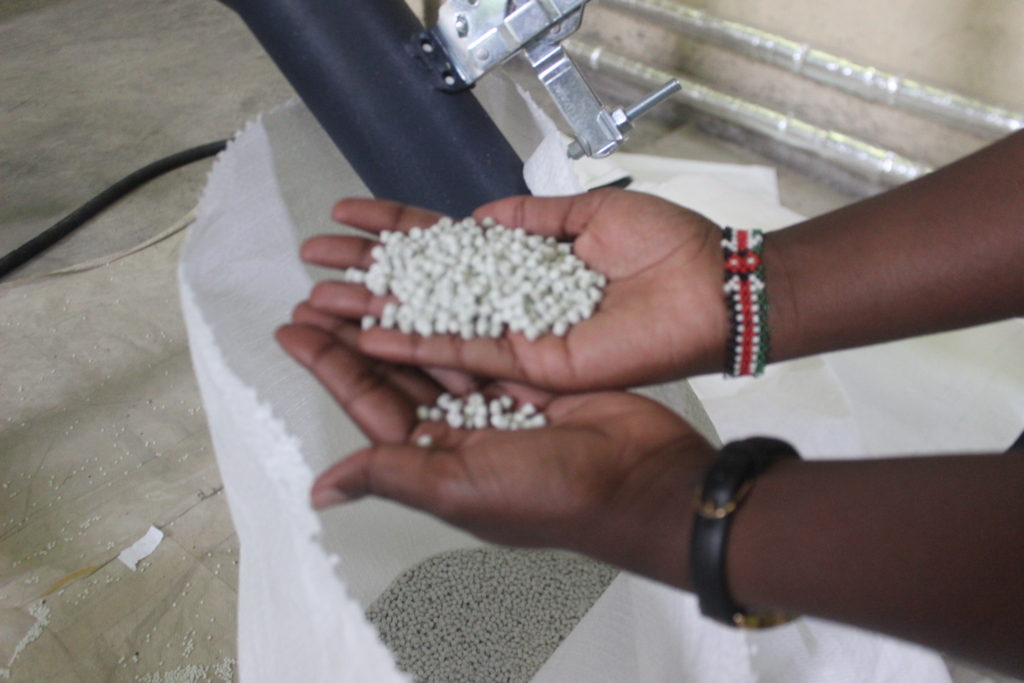
So how does the whole chain work? Kerian explains that “we have a total of 25 collection centers around Nairobi. The 2,500 suppliers who are all registered in our database come with the plastic material they will have collected within an aggregated period of time and they get paid for that material. Depending on the type of material they will have collected, we pay them between Ksh 12-19 per KG. The technology we are using is able to show us the type of material collected. We have contracted two truck owners to pick waste from the designated points across the city where they make at least three trips in a day.”
He further explains that “once the materials are delivered to the factory, they are first sorted based on color codes and other criteria then crushed before undergoing a rigorous washing process to remove oils and glues. This, in turn, produces palates or raw materials that we sell to companies’ which manufactures such plastic products as bottles, chairs, crates, buckets, basins, and bins.
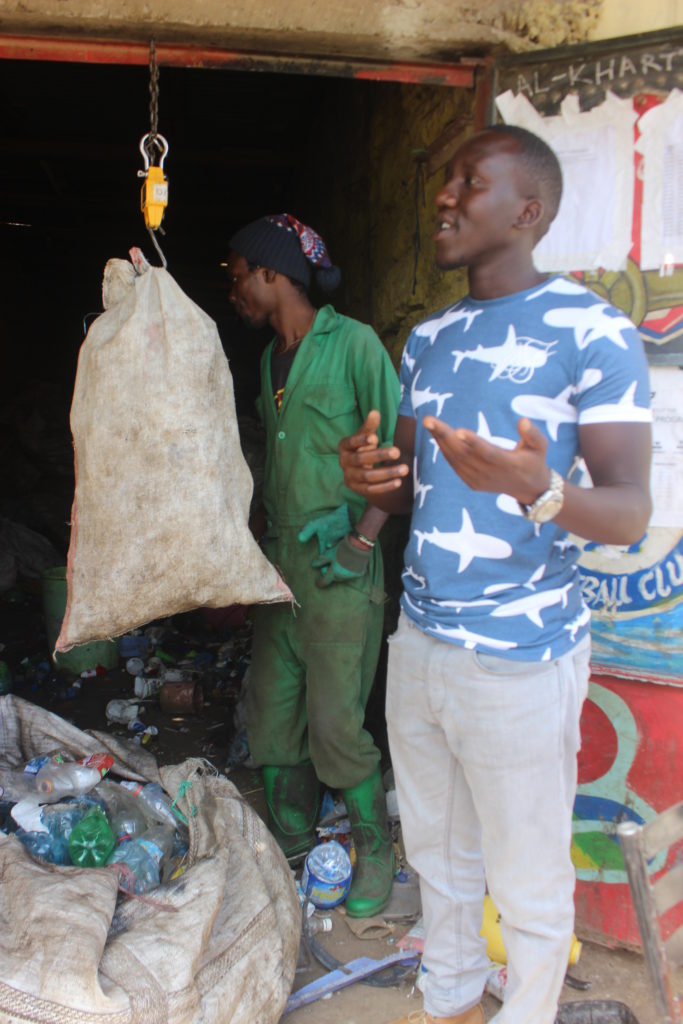
Mr. Green Africa collects specific types of plastic, namely PET (Polyethylene terephthalate: largely used in soda and water bottle packaging), HDPE (High-density polyethylene: used in shampoo bottles and cooking oil jerry cans) and PP (Polypropylene which is used in buckets and crates.)
The factory processes up to 150 tonnes per month and uses water from a treatment plant that recycles nearly 70 percent of the water used at the factory.
Keiran is glad that the business has created a mutual relationship that benefits both the company and the suppliers. This, in turn, has helped them achieve their social, financial and environmental goals. With a staff of 107 employees, he prides himself on having created employment among the youth. “A good number of our employees, both in the management and general are young people of ages between 22 and 33, which we are trying to empower,’ he says.
Keiran adds that getting rid of the plastic menace has in turn given dignity to garbage collectors thereby creating a social impact on their lives.
“Socially you do something good for someone, environmentally you keep the plastics away from lying all over the place and for your pockets because you can make something small out of it and sustain yourself,” he says.
The company has been able to contribute to a circular economy where the waste management is eliminated through the continuous recycling process which may be regarded as a possible solution to the plastic menace, a greater part of pollution the government has been grappling with. Environmental pollution is currently becoming a matter of global concern and with the country being dependent on natural resources where most of its GDP comes from; pollution of any form may further course depletion of resources.
Plastic bottles and bags are resistant to biodegradation and because of this, the long-term effects of pollution are far-reaching. A recent study conducted by the UN Environment indicated that 2,000 of the 4,000 tonnes of plastic materials produced each month in Kenya end up in municipal waste streams and landfills. The study also mentions that they also contribute to the 8 million tonnes of plastic that leak into the ocean every year adding that at current rates by 2050 there will be more plastic in the oceans than fish, wreaking havoc on marine fisheries, wildlife, and tourism.
Kenya today is the 11th country to take action in support of the UN Environment campaign. In Africa, Rwanda and Morocco have already banned plastics. Kerian says that the government efforts on plastic reduction need to be supported through recycling and calling on consumers to change their habits of throwing them anywhere before they can destroy water catchment areas, adding that public and private sector players must jointly address the issue of environmental pollution.
“As a startup, our focus has shifted to enhancing more innovative ways of involving the public in plastic management. We are piloting a program of reward system where we encourage users to deliver the plastic bottles to us and in turn give them incentives,” he says.
Early this year, Mr. Green Africa partnered with global consumer goods manufacturer Unilever to launch a U-Turn waste project where it is reaching out to consumers on recycling plastics, increase collection points from the city’s 25 to 100 countrywide by end of this year. Currently, Unilever is their biggest customer. Their (Unilever’s) product, the Sunshine scouring powder will be sold in packaging made from fully-recycled materials in Kenya and the East African region, a move that is geared towards mitigating the production of more plastics.
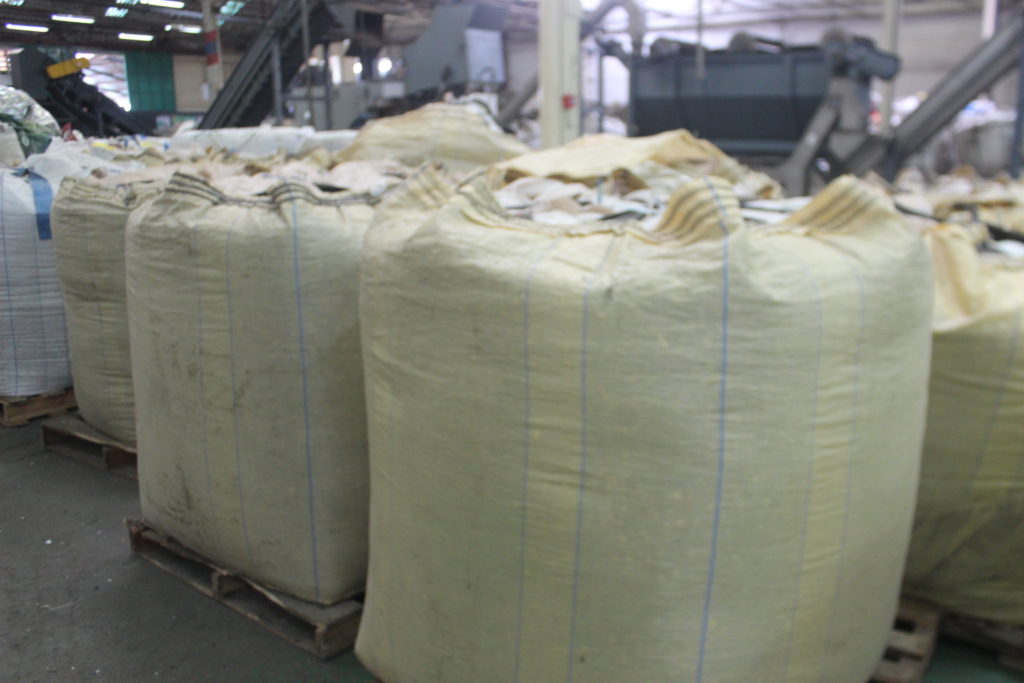
Keiran said the move was an important milestone to demonstrate that it is possible to create a sustainable, inclusive, traceable and fair circular plastics economy in emerging markets, adding that partnership will enable the company to expand its plastic recycling operations in Kenya, where only 10 percent of plastic waste is currently being recycled. This is the biggest success for the 5-year-old company; where they are tapping into the Big Four Agenda to buy Kenya build Kenya. Unilever targets reducing by half its use of virgin plastic, by reducing its absolute use of plastic packaging by more than 100,000 tonnes through increased use of recycled plastic.
The banker, now turned environmentalist says the friendliness of Kenyans helped him adapt to the local environment where he was able to build trust with the locals who helped him actualize the idea of recycling.
He adds that creativity does not require a university degree and there is a need to encourage young people to shift from the mindset of white-collar jobs and get innovative. “I have learned to follow value system through tough times, trust and build a relationship with the team and work to achieve a common cause with the right people,” Smith says.
Last year, Mr. Green Africa raised an undisclosed amount of funding from DOB Equity, a Dutch family-backed impact investor in East Africa, and Global Innovation Fund, in partnership with Unilever, to help it expand and build on its aggregation model to enable it to scale the trade of recyclables while building a strong and reliable supplier network. This will lead to Mr. Green Africa increasing its processing capacity to produce higher-value recycled products in larger volumes to supply consumer goods companies via its tech-enabled value chain platform.

